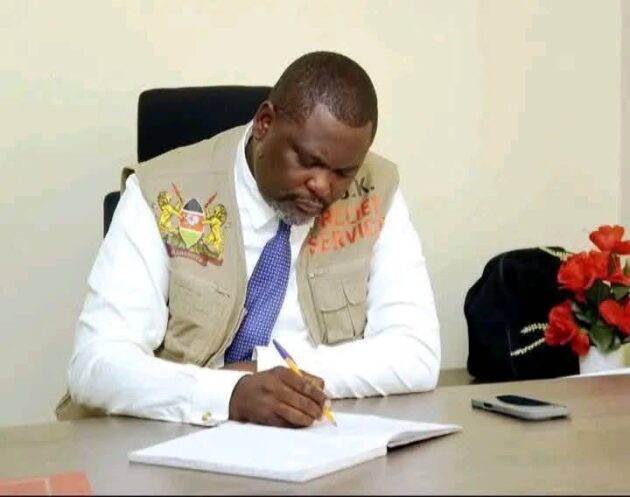
Public Workforce Overstretched, Needs to Triple for Efficiency
NAIROBI, Kenya, Jul 4 – Public Service, Human Capital Development and Special Programmes Cabinet Secretary Geoffrey Ruku has raised the alarm over the mounting pressure on overstretched public workforce, saying the country needs at least three million public servants to meet growing demands.
Ruku said the current workforce estimated at just over one million across both national and county governments is severely overburdened, serving a population of more than 55 million Kenyans.
This imbalance, he warned, is undermining service delivery and slowing down national development.
“We are more than 55 million Kenyans, and public services are delivered by at most one million people,” said the CS.
“Logically, we need about three million Kenyans in public service to effectively offer services and create a conducive environment for local and foreign investors.”
According to Ruku, the current staffing levels have forced public servants to shoulder more responsibilities than they can effectively manage, resulting in service delays, inefficiencies, and growing public dissatisfaction.
“Many public servants are overstretched and under-resourced. They are expected to deliver results despite overwhelming workloads and limited support,” he said.
The CS pointed out that while the need to expand the public workforce is urgent, the government faces a difficult balancing act due to an already strained wage bill.
“Our revenue is not enough to support the public service. That’s the pain the President and the Executive are currently grappling with,” he noted.
He called for a rethinking of Kenya’s revenue generation strategies to allow for the recruitment of additional staff without exceeding the recommended wage bill ceiling of 35 per cent of total revenue.
“We may require about three million Kenyans in public service, but we must also ensure that they are adequately paid and that the wage bill remains within sustainable limits,” he said.
Ruku also highlighted pay disparities between the public and private sectors, noting that most government employees are underpaid relative to the demands of their roles.
“Most public servants are not paid enough, compared to their peers in the private sector,” he said.
To address inefficiencies and reduce pressure on existing staff, the government has digitised over 30,000 services. However, Ruku said a more holistic transformation is needed.
“We need a more digital and unified public service, and that’s the direction we’re heading,” he stated.
“We have a policy the Transformation of the Public Service Sector which we will roll out this year to modernise our systems and improve delivery.”
He added that the policy will prioritise retraining, retooling, and better equipping public servants to help ease their workload and raise service standards.
“Our goal is to ensure public servants are not only sufficient in number, but also well-supported to serve Kenyans more effectively,” Ruku said.